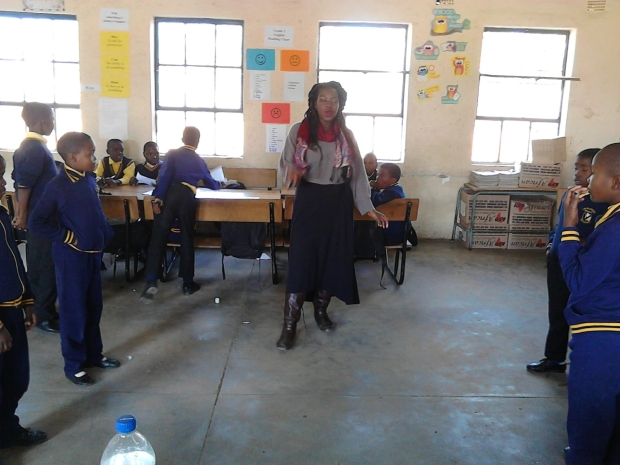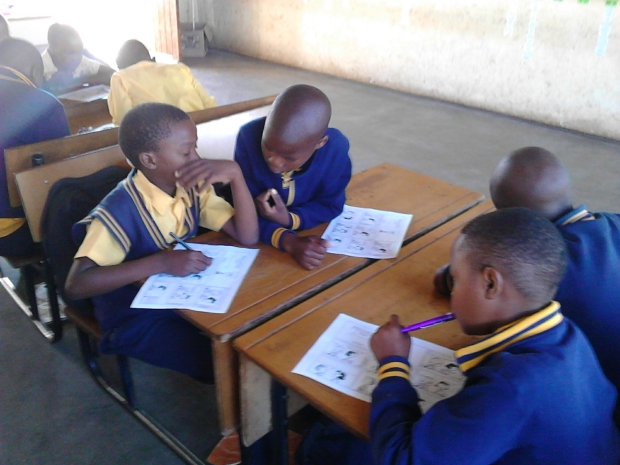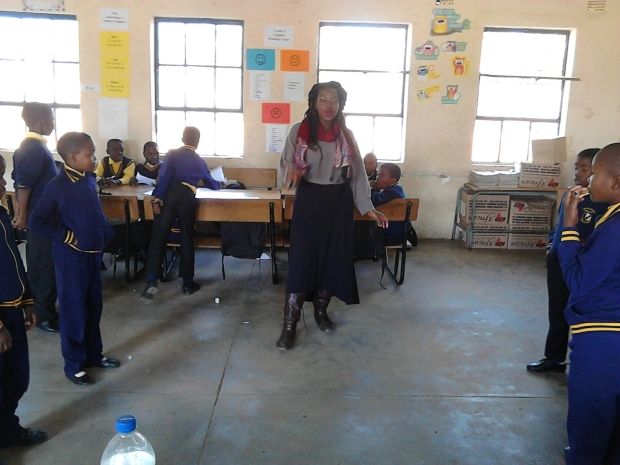Classroom culture is a concept the education world focuses on because we are taught that the culture built in a classroom will promote a positive community amongst the children while providing them with an expectation of how they should behave.
Since the school year began, balancing both a positive culture as well as management has been fairly successful! At first it was a little chaotic because 1) I do not have my own classroom and 2) teachers must be willing to work with the seating arrangement of the learners. After getting over that hump, everything became smoother.
As a former Corps Member with City Year DC, creating a culture was very useful with my first grade small groups. The students knew the rules, protocols, positive incentives, consequences, and behavior expectations and I wanted to make sure that I implemented that same culture in South Africa.
1. Positive Incentives are important to give the learners a reason to work and improve behavior.
Positive incentives are extremely, extremely important!! Yes you can raise your voice, but that only keep order for a little bit. Incentives keep the learners pushing towards getting something. Some incentives that I have done are:
– Treasure Box that has candies, bracelets, and school supplies
– Stickers
– End of the Term Party [for those who have passed]
– Positive letters home in home language
-Star Student of the Week
– Star System à Start out with five stars and if they do not have three stars by the end of the week, they are not allowed to have library time on Friday.
2. Be Consistent
Consistency is a must when establishing a classroom culture/ management skills! The learners need to get use to a schedule. They need to know when I enter the room, it’s time to take out their subject notebooks and write the Morning Message and Warm Up. They know that everyday their parents have to sign their homework. Every Thursday, I take their workbooks and subject notebooks to check their homework.
3. Morning Messages
Morning Messages are a great way of setting the tone of the class, helping with speaking and reading, and telling the learners what exactly it is that they are going to learn for the day.
Ex.
Good Morning Class,
Today is Tuesday, 26 January 2016. Today we will learn the meaning of can, must, and may. We will listen to the song, “I Can” and complete our worksheet. Lastly, we will also complete exit tickets and hand them in to Ma’am Mokgadi.
4. Daily Warm Up or “Do-Now” exercise
Warm Ups generally gives the learners something to do as the teacher prepares for class and it also avoids any behavior issues that may occur. Warm Ups are typically a quick 5min-7min activity. I use my warm ups to review Language Structures and Conventions aka grammar.
5. Positive Classroom Rules
Positive classroom tell children what exactly they have to do. Have negative classroom rules forces the children to feel like they cannot do anything and creates this dictatorship feeling.
Using positive rules such as:
1. Participation is important
2. Come to class prepared
3. Be respectful
Etc.
6. Voice Monitors
On my wall, I have green, yellow, and red sheets of paper that I use as a voice monitor. It is similar to a representation of a robot. The red indicates to stop talking completely, yellow indicates the time to whisper, and green indicates the time to talk.
7. Classroom Leaders
Classroom leaders are picked based on academic performance. In my Grade 5 class, I have seven group leaders. Each leader are responsible for helping their teams improve throughout each term, ensuring that the group work get completed, making sure that everyone in their group are participating. Classroom leaders are good because they help break the language barrier and help explain the activity to their peers in home language so that everyone has an understanding with what is happening.











